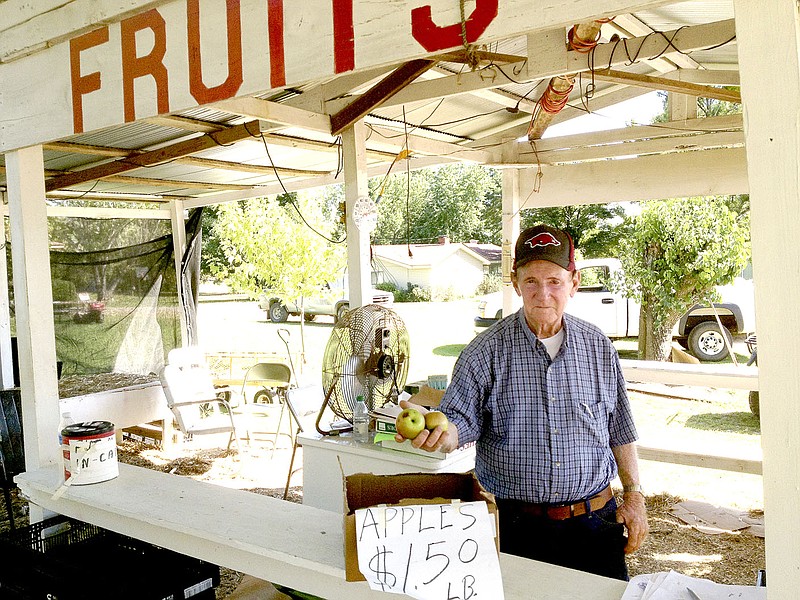Editor's Note: This article was published last fall in the Entertainment Fort Smith magazine.
I always associate fall with festivals and fairs, and festivals and fairs with food. Specifically in this case, apples: candy apples and caramel apples -- not really what the person who coined the phrase about "an apple a day" had in mind.
On one of the first sweater-weather days of the fall, I found myself near the town of Lincoln, Ark., home of the Arkansas Apple Festival.
Lincoln was once known as the Apple Capital of Arkansas and you can still buy apples at Apple Town, its old-fashioned farm stand. This is just the type of place you love to stumble upon and I hit the jackpot as apple farmer and owner Bryan Reed and his wife, Jane, took a moment to talk with me about their family history.
"My family came to this area in 1827 and four generations later, we are still selling apples," Bryan said. Jane proudly pointed out the apple peeler purchased in 1875 by James Franklin Reed, great-great-grandfather to Bryan.
When I asked Bryan why he stayed in the apple business instead of selling his land to developers, he smiled and said, "I love the smell. There is nothing that smells better than an apple orchard in the spring and then again in the fall."
I was captivated and decided I needed to check into planting an apple tree.
Reed is not the only person who loves the smell of apple blossoms. In 1901, the Arkansas General Assembly named the apple blossom our state flower. I found this and so much fascinating information about Arkansas apple mania while viewing a digital exhibit "Fruit-Full Arkansas Apples" through the library of Crystal Bridges Museum.
Affectionately known as Mr. Arkansas Apple, University of Arkansas professor of horticulture emeritus Dr. Roy Rom, who was a consultant for this project, and I had a great conversation about apples and the history of the apple industry. Dr. Rom explained that at its height in 1919, 5.5 million bushels of apples were being shipped out of Arkansas, which, at the time, produced more apples than any other state.
Apples were dried, made into cider, vinegar and even brandy. In 1852, a wagon train filled with apples traveled to Van Buren to be shipped by boat to Little Rock. An exhibit of Arkansas apples won all major categories at the 1905 St. Louis World's Fair and the Arkansas Black won first prize at a 1904 exhibition in Paris, France, according to Dr. Rom.
The Southwest Times Record in Fort Smith published full page features with road maps showing orchard locations, from 1932 to 1942. One checkpoint recorded 540 cars on Highway 71.
Brochures were printed calling this "The Land of a Million Smiles." Visitor centers were staffed with "lovely young ladies of the Ozarks" to guide apple blossom tourists.
Several factors contributed to the demise of Arkansas apple mania, including a kind of agricultural "gold rush" to supply fruit, which sometimes lowered its quality.
Even though times change, wonderful heirloom apples grown in Arkansas, with their superior flavors, are enthusiastically embraced by foodies, locovares and hard cider enthusiasts.
You can find more and more antique varieties of apples being grown locally and sold at our farm stands and farmers markets.
These forgotten fruit trees can again be purchased by the kitchen gardener from local nurseries. Fall is the perfect time to plant apple trees.
I'm going to continue my research. Right now, I am leaning toward a Grimes Golden, which has been described as tasting "as sweet as a praline and juicy as a glass of cider."
Community on 09/28/2016
